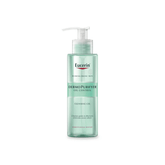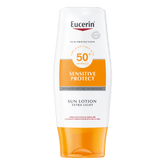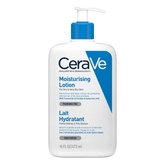The dangers of making home-made hand sanitiser
Have you considered making your own home-made hand sanitizer? In recent weeks, it has become one of the most sought-after personal hygiene products. Many formulas have gone viral as home-made alternatives, that are much more affordable, especially considering that they have sold out in pharmacies and supermarkets alike. But, is making hand sanitizer at home recommended?
Although the recommendation is to apply hand sanitiser when you get to any supermarket or establishment, in reality the most effective hygiene method for stopping the expansion of the virus is washing your hands with soap and water for at least 20 seconds. Hand sanitiser should only be considered a valid alternative when you have no access to soap and water. Home-made versions can also contain dangers that are pretty easy to avoid. Let us tell you more:
Four reasons for not making home-made hand sanitiser
Let us share with you the reasons that making your own hand sanitiser at home is not a good idea and why you should preferably use those sold at pharmacies in addition to frequently washing your hands with soap and water.
- Although the formula is approved by the health authorities, you might not prepare it correctly. The formula for home-made hand sanitiser is simple, but it remains chemical and, therefore, you need to make sure you add the ingredients in exactly the right proportions. Often, you’ll find that you don’t have exactly what you need and that is when problems can arise. For example, the concentration of alcohol might be too low, meaning the hand sanitiser is not really a disinfectant.
- Your source of information might be incorrect: the formula might not be beneficial for your hands, and much less effective. Not all recipes you find online for making your own hand sanitiser are accurate and you might be wasting resources and making your skin suffer unnecessarily.
- Pharmacies need alcohol: it is more than likely that you’ve been to several pharmacies and been unable to find alcohol at any of them. We should be responsible and, no matter how eager you are to make your own hand sanitiser, we shouldn’t deplete either alcohol or glycerine stocks (the main ingredients of hand sanitiser) at pharmacies as this may affect somebody in more urgent need of them.
- The best alternative is soap and water: as we were saying, hand sanitiser is useful when there is no other available alternative. However, the virus is particularly vulnerable to soap as it gets covered by a lipid layer. You’ll probably have heard that the health authorities recommend washing your hands regularly with soap and water. They’re the experts, take notice of their recommendations.
How to wash your hands with soap and water properly
Washing your hands with soap and water is the proper way to keep them free from the virus and other pollutants. This is undoubtedly something that we should convert into an important part of our daily lives.
When you wash your hands, you also need to follow specific guidelines to make sure the process if effective and exhaustive. Have a look at this simple 5-step routine to keep your hands in impeccable condition:
- Soap them until foamy and rub the back of your hands, between your fingers and underneath your nails repeatedly.
- Count to about 20 or 30 seconds repeating these movements and thinking about where you might need most care, for example, under your nails.
- Rinse well using clean running water, whether cold or tepid (we’ll leave this choice up to you).
- To finish off, dry your hands with a clean towel or paper. Remember that if you use a dirty towel, you’ll undo all your hard work.















